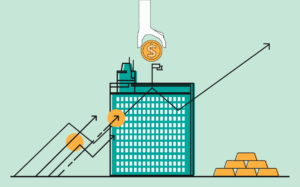Things to Consider for Your 2015 Capital Gains Tax
There are all kinds of investors in the world. Some are looking to make a quick buck by buying and then quickly selling stocks as soon as they increase in value. Other investors buy stocks with an eye toward the future, which means they are in it for the long haul.
In any case, anyone who invests wants to be successful at it. It’s a great feeling to buy stock in a company and see that stock increase in value. However, at some point if you plan on selling that stock and cashing in or your gains, you will have to give a portion of those gains to the taxman. What percentage you will owe will depend on the size of your gain and how long you have owned the stock.
The government wants investors to hold onto their stocks longer. To encourage this they have a lower tax percentage on stocks held longer than a year. Whether you’re a quick turnaround trader or a long-term investor here’s what you should be aware of in 2015 for your capital gains taxes.
First, generally all you need to know to determine your capital gains is the difference between what you paid for the stock and how much you sold it for. When you know that amount then you can calculate the tax. Your tax rate will depend on which bracket you’re in. There are three that apply:
- If your ordinary income puts you in the 10-15 percent tax bracket, then your long-term capital gains rate is 0 percent.
- If your ordinary income falls in one of the 25, 28, 33, or 35 percent tax brackets then your long-term capital gains rate is 15 percent.
- If your ordinary income is in the 39.6% tax bracket, then your long-term capital gains rate is 20%.
There are a few other caveats to remember. For high-income earners, there is an additional 3.8 percent surtax on net investment income. Also, you only pay taxes on the net of your capital gains, which can make a big difference if you sell more than one stock in a year. If you want to learn more about capital gains taxes then please contact GROCO for more answers. Click here or call us at 1-877-CPA-2006.
The State of the Private Equity Industry—Is It All Down Hill From Here?
In the past private equity has been a solid way of investing taking in trillions of capital, but with the ever changing world we live in, what is the state of the industry? Private equity investments typically consist of money being placed in a company by venture capital firms, private equity firms or angel…
How the Wealthy Save on Taxes
Whether you make minimum wage or you’re in the richest 1 percent of earners, every taxpayer likes to keep as much of his or her hard-earned income as possible. There are hundreds of ways to save on taxes and many of these strategies are universal to all taxpayers no matter which tax bracket they…
How the Internet Became Commercial
What’s Behind the Commercial movement of the Internet? Believe it or not the Internet was not originally created to share your life on social media sites like Facebook and Instagram or to watch movies, play games or follow your favorite pastime. When it was first invented, the military and research universities were the primary…
Critical Decisions When Launching a Startup
There are countless aspects to launching a startup company. To do it successfully a founder has to make many critical decisions and be right on most of them. Many entrepreneurs have a great idea or product with great plans to make it successful. However, they don’t make the right business decisions, which leads to their…




